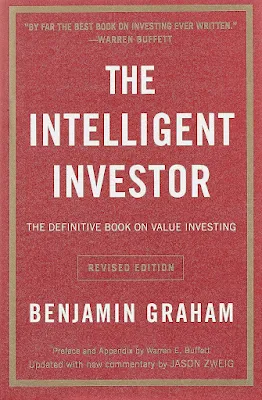 |
If you are interested in learning how to invest wisely and successfully, you may have heard of a book called "The Intelligent Investor" by Benjamin Graham. This 1949 book is widely recognized as one of the best works on value investing ever written. But what exactly is value investing, and what can you learn from this book?
What is value investing?
A key component of the value investing investment approach is identifying cheap stocks with sound fundamentals and future development potential. Value investors do not care about the market's short-term swings or what other investors think is best. Instead, they examine a company's intrinsic value in light of its assets, earnings, dividends, and future prospects. The stock's current market price is then compared to this value. Stocks are viewed as good investment opportunities and bargains if their market price is much lower than their intrinsic worth.The foundation of value investing is the idea that the market is frequently illogical and emotional, that it might overreact to positive or negative news, leading to price distortions. By purchasing cheap and selling high, value investors try to take advantage of these distortions. They are not trying to time the market or forecast its course. They retain their stocks for a long time until they achieve their true value or until they discover a better opportunity. They are patient and diligent investors.
The foundation of value investing is the idea that the market is frequently illogical and emotional, that it might overreact to positive or negative news, leading to price distortions. By purchasing cheap and selling high, value investors try to take advantage of these distortions. They are not trying to time the market or forecast its course. They retain their stocks for a long time until they achieve their true value or until they discover a better opportunity. They are patient and diligent investors.
What are the main ideas and lessons from "The Intelligent Investor" by Benjamin Graham?
Benjamin Graham's book "The Intelligent Investor" is a thorough and tried-and-true manual on value investing. The book offers advice on how to use value investing in the stock market successfully. Also, it offers advice on how to avoid the mental and emotional traps that frequently keep investors from realizing their full potential.Some of the main ideas and lessons from "The Intelligent Investor" by Benjamin Graham are:
- The difference between investment and speculation: According to Graham, an investment is an activity that, after careful consideration, assures the protection of the principal and a sufficient return. Any additional procedure that does not fit these requirements is referred to by him as conjecture. He recommends investors stay away from speculating unless they have the expertise, experience, and resources to take on the risk, and warns against conflating the two.
- The importance of margin of safety: According to Graham, an investment is an activity that, after careful consideration, assures the protection of the principal and a sufficient return. Any additional procedure that does not fit these requirements is referred to by him as conjecture. He recommends investors to stay away from speculating unless they have the expertise, experience, and resources to take on the risk, and warns against conflating the two.
- The distinction between active and passive investors: According to Graham, there are two types of investors: active or enterprising investors, who are prepared to invest a significant amount of time and energy in the research, selection, and management of their investments, and passive or defensive investors, who favor a less involved and complex approach. He recommends various portfolio management strategies for various investor types. He suggests a diversified portfolio of inexpensive equities that meet particular standards for quality, growth, and profitability for active investors. He advises balanced portfolios of high-grade bonds and index funds, which follow the performance of the market, for passive investors.
- The role of Mr. Market: Mr. Market, a fictitious character that Graham introduces, stands in for the irrationality and mood swings of the stock market. Depending on his optimism or pessimism, Mr. Market offers to purchase or sell stocks every day at a different price. Graham encourages investors to generally disregard Mr. Market's proposals unless they are obviously beneficial. He exhorts investors to use Mr. Market as an opportunity giver rather than a leader and to view him as their servant rather than their master.
- The benefits of dollar-cost averaging: Graham recommends a method known as dollar-cost averaging that entails investing a set sum of money at regular periods regardless of the state of the market. By doing this, investors can gradually lower their average cost per share and profit from market swings without having to try to time them. According to Graham, dollar-cost averaging can deliver positive outcomes for passive investors who lack the knowledge or interest to evaluate specific equities.
Conclusion
In addition to Warren Buffett, who regards Benjamin Graham as his mentor and role model, "The Intelligent Investor" by Benjamin Graham is a classic work on value investing that has impacted generations of investors. The book shows readers how to evaluate stocks, purchase them at a discount, diversify their portfolios, deal with market changes, and avoid frequent pitfalls. Also, the book highlights the value of having a healthy temperament, a logical mind, and a long-term outlook. Investors can increase their chances of making sustained and satisfying returns in the stock market by adhering to Graham's concepts and recommendations.
You can buy this book through the link below:
